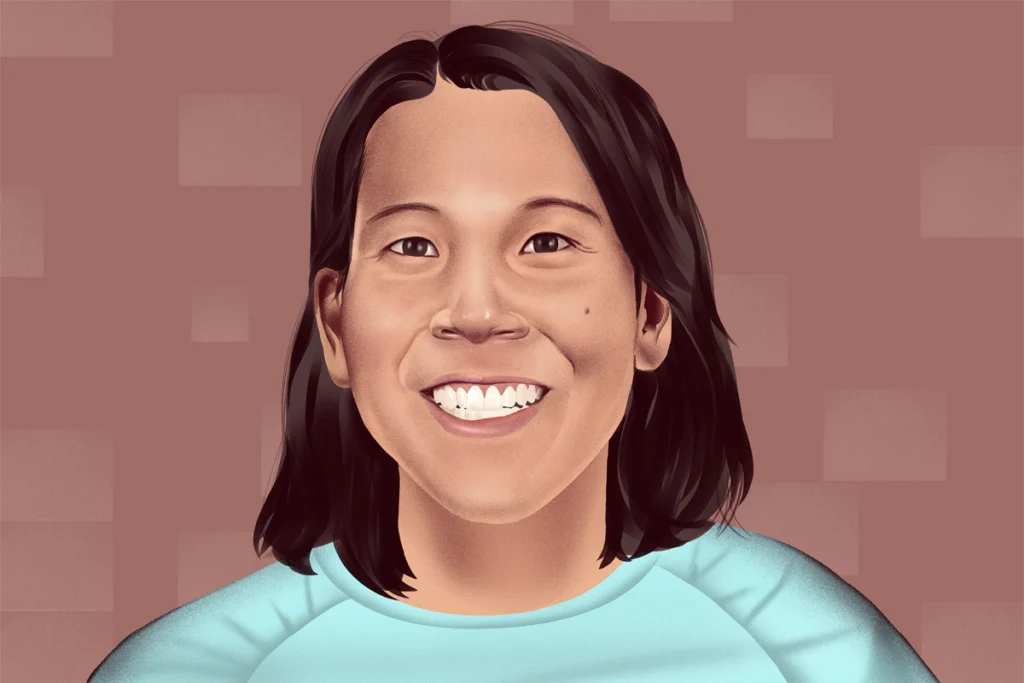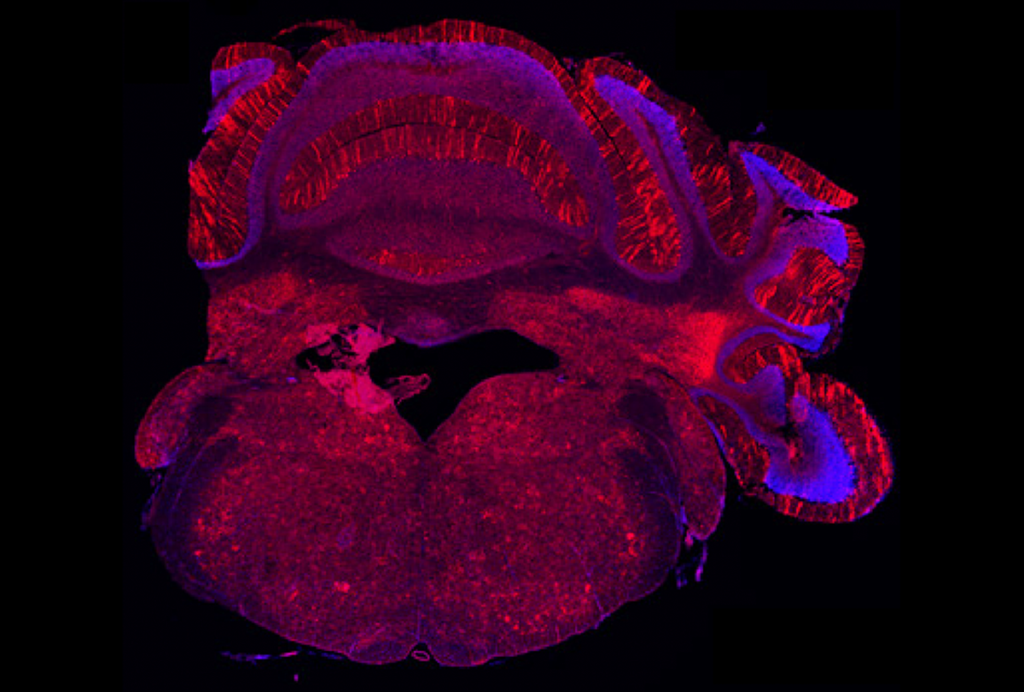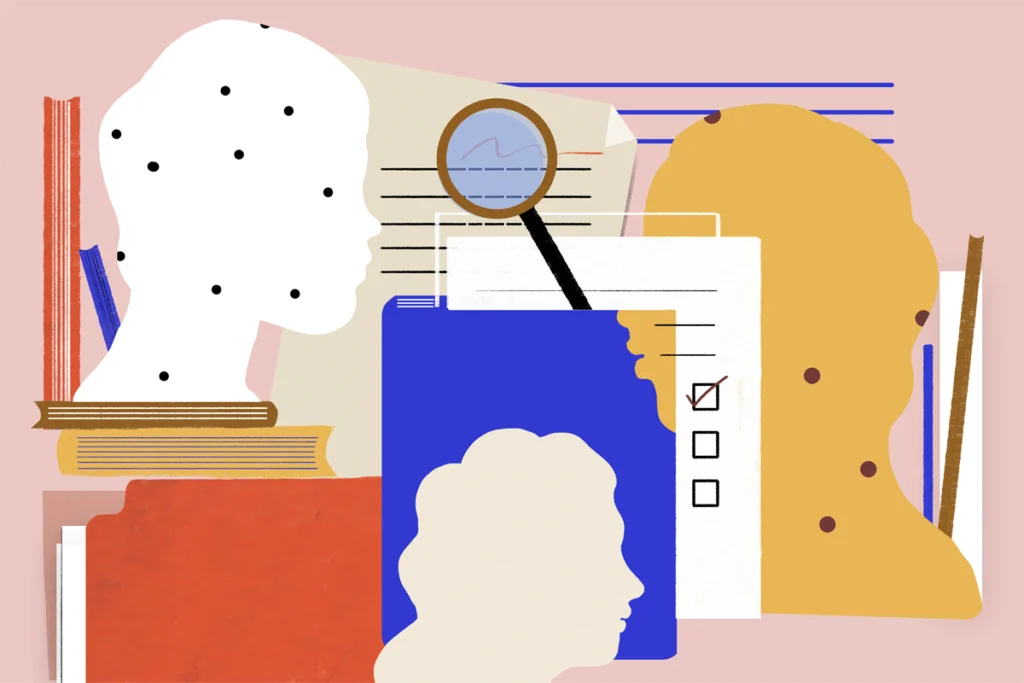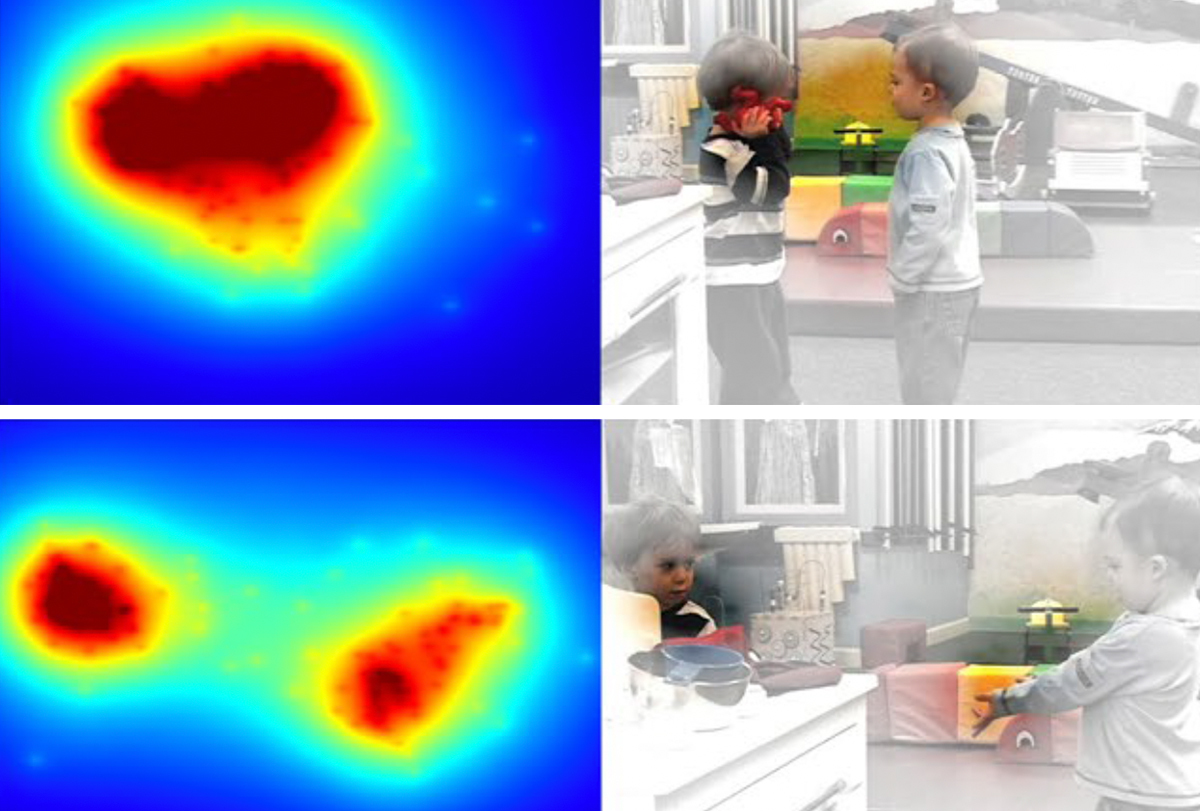Diagnostic tests
Recent articles
A genetics-first clinic for catching developmental conditions early: Q&A with Jacob Vorstman
A new clinic is assessing children who have a genetic predisposition for autism and other neurodevelopmental conditions—sometimes before traits appear.

A genetics-first clinic for catching developmental conditions early: Q&A with Jacob Vorstman
A new clinic is assessing children who have a genetic predisposition for autism and other neurodevelopmental conditions—sometimes before traits appear.
Diagnosing autism and teaching neurodiversity with So Hyun “Sophy” Kim
The Korea University professor on her path to autism research and studying in the United States.

Diagnosing autism and teaching neurodiversity with So Hyun “Sophy” Kim
The Korea University professor on her path to autism research and studying in the United States.
Pinning down ‘profound autism’ for reliable research: Q&A with Matthew Siegel
A clear and actionable definition for the term could enhance research and improve care, Matthew Siegel says.

Pinning down ‘profound autism’ for reliable research: Q&A with Matthew Siegel
A clear and actionable definition for the term could enhance research and improve care, Matthew Siegel says.
Mutation in top autism-linked gene may alter eye reflex
The discovery could help clinicians diagnose children who carry mutations in the gene, called SCN2A, and gauge their responses to potential therapies.

Mutation in top autism-linked gene may alter eye reflex
The discovery could help clinicians diagnose children who carry mutations in the gene, called SCN2A, and gauge their responses to potential therapies.
‘Prototypical autism’ research is likely a dead end
Efforts to define “frank” or “classic” forms of the condition build on several assumptions that the science has not yet borne out.

‘Prototypical autism’ research is likely a dead end
Efforts to define “frank” or “classic” forms of the condition build on several assumptions that the science has not yet borne out.
New tablet-based tools to spot autism draw excitement — and questions
Handheld devices promise to bring autism detection home, but many researchers urge caution.

New tablet-based tools to spot autism draw excitement — and questions
Handheld devices promise to bring autism detection home, but many researchers urge caution.
Teasing apart insistence on sameness with Mirko Uljarević
The hallmark autism trait has multiple facets, Uljarević and his colleagues have found.

Teasing apart insistence on sameness with Mirko Uljarević
The hallmark autism trait has multiple facets, Uljarević and his colleagues have found.
Looking at eye tracking’s potential for clinical trials
This month’s Going on Trial newsletter explores how eye tracking might be used beyond helping with diagnosis, among other drug development news.

Looking at eye tracking’s potential for clinical trials
This month’s Going on Trial newsletter explores how eye tracking might be used beyond helping with diagnosis, among other drug development news.
Tablet-based tool to spot autism validated in two studies
The new tool could help clinicians diagnose autism in children younger than 3, the findings show.

Tablet-based tool to spot autism validated in two studies
The new tool could help clinicians diagnose autism in children younger than 3, the findings show.
Amy Wetherby: Impatient for progress
A speech-language pathologist by training, Wetherby has spent more than four decades developing tools to help identify and treat autism early; now her work has taken on a more personal sense of urgency.

Amy Wetherby: Impatient for progress
A speech-language pathologist by training, Wetherby has spent more than four decades developing tools to help identify and treat autism early; now her work has taken on a more personal sense of urgency.
Explore more from The Transmitter
Mitochondrial ‘landscape’ shifts across human brain
Evolutionarily newer regions sport mitochondria with a higher capacity for energy production than older regions, according to the first detailed map of the organelles in a tissue slice, adding to mounting evidence that the brain features a metabolic gradient.

Mitochondrial ‘landscape’ shifts across human brain
Evolutionarily newer regions sport mitochondria with a higher capacity for energy production than older regions, according to the first detailed map of the organelles in a tissue slice, adding to mounting evidence that the brain features a metabolic gradient.
Expediting clinical trials for profound autism: Q&A with Matthew State
Aligning Research to Impact Autism, a new initiative funded by the Sergey Brin Family Foundation, wants to bring basic science discoveries to the clinic faster.

Expediting clinical trials for profound autism: Q&A with Matthew State
Aligning Research to Impact Autism, a new initiative funded by the Sergey Brin Family Foundation, wants to bring basic science discoveries to the clinic faster.
This paper changed my life: Shane Liddelow on two papers that upended astrocyte research
A game-changing cell culture method developed in Ben Barres’ lab completely transformed the way we study astrocytes and helped me build a career studying their reactive substates.

This paper changed my life: Shane Liddelow on two papers that upended astrocyte research
A game-changing cell culture method developed in Ben Barres’ lab completely transformed the way we study astrocytes and helped me build a career studying their reactive substates.